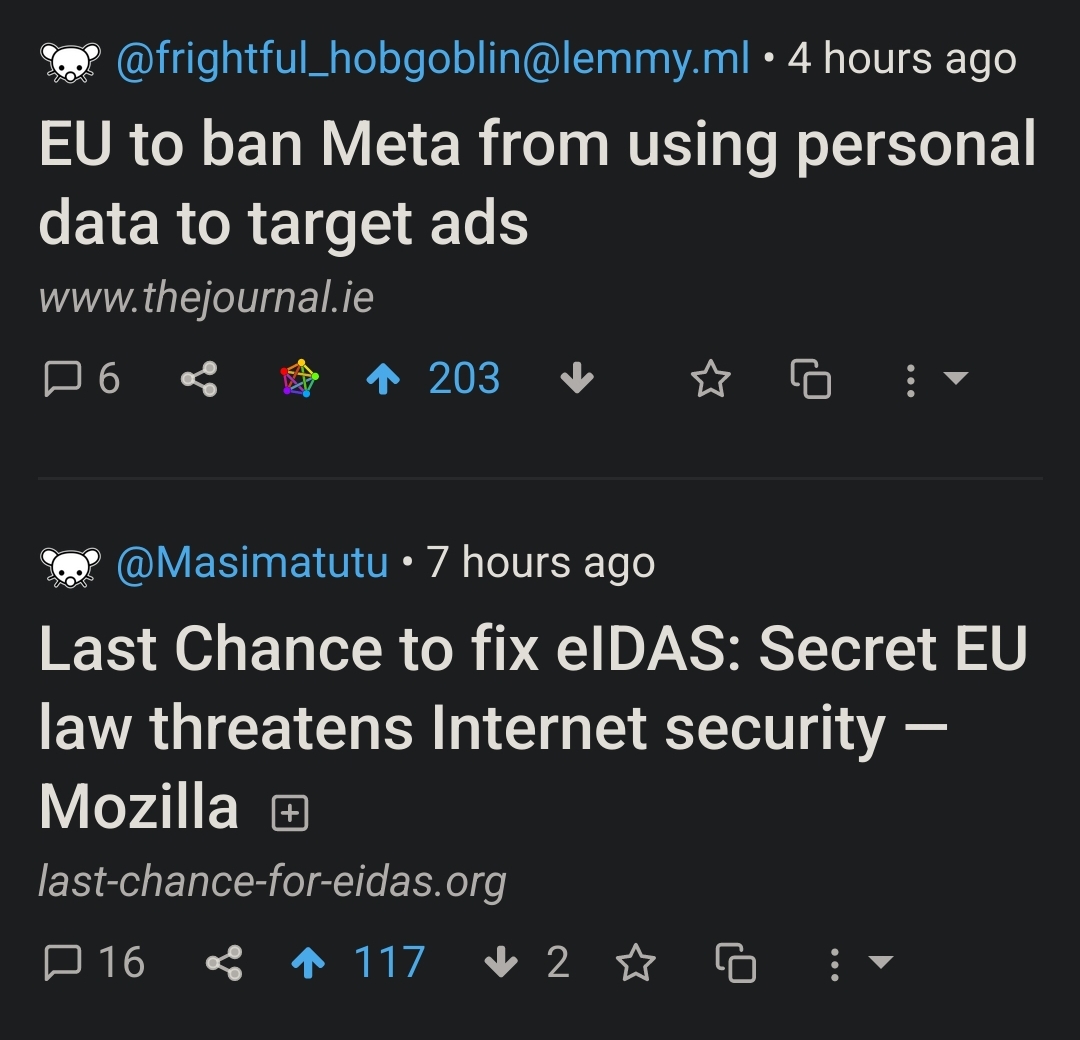this post was submitted on 02 Nov 2023
347 points (98.3% liked)
Europe
8324 readers
1 users here now
News/Interesting Stories/Beautiful Pictures from Europe 🇪🇺
(Current banner: Thunder mountain, Germany, 🇩🇪 ) Feel free to post submissions for banner pictures
Rules
(This list is obviously incomplete, but it will get expanded when necessary)
- Be nice to each other (e.g. No direct insults against each other);
- No racism, antisemitism, dehumanisation of minorities or glorification of National Socialism allowed;
- No posts linking to mis-information funded by foreign states or billionaires.
Also check out [email protected]
founded 1 year ago
MODERATORS
you are viewing a single comment's thread
view the rest of the comments
view the rest of the comments

reading further, (summarising) the change is to no longer exclusively trust parties like Google to rule who is and isn't considered trusted online and instead delegates this to EU member states. This does not affect the use of encryption, or a safe dns provider. No worries about your data being recorded.
However, it does stop large organizations like google and Mozilla from abusing their position of authority to harm competitors availability and trust online
It sounds like you made up your mind in advance to support this. Mozilla (and I believe Google too) have a public and rigorous process to determine which certificates to include in their browser, and, importantly, which not too. This new regulation would enable governments to circumvent that process and force browsers to include their certificates, even if those are used to spy on citizens, or are insecure - like the government of Kazakhstan tried to do before. All this using a process without checks and balances.
Also note that parties like Google aren't trusted "exclusively" - you can always switch browsers if you don't trust them. That will no longer be possible with this regulation.